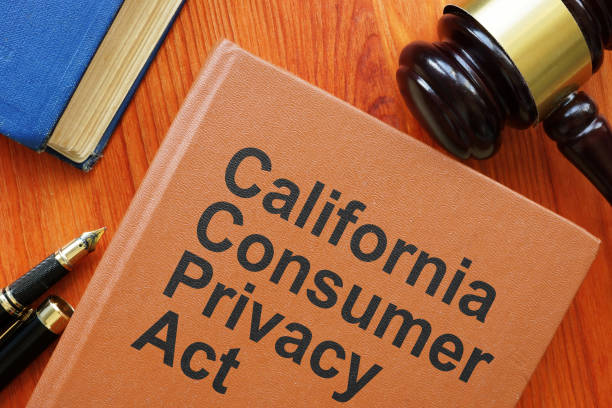Menu list
- Overview of Minor Employment Requirements
- School Attendance and Work Permits
- Permissible Working Hours for Minors
- When School Is In Session
- When School Is Not In Session
- Types of Jobs Minors Can Perform
- Wage and Compensation Standards for Minors
- Overtime and Break Requirements
- Rights and Protections for Minor Workers
- Legal Penalties for Violations
- Conclusion
Overview of Minor Employment Requirements
In California, minors who are under 18 and have not yet graduated from high school need to meet a few important requirements before they can start working. One of the biggest steps is getting a work permit. It doesn’t matter if the minor isn’t a California resident or if school attendance isn’t legally required—permits are still a must. Typically, a young person can apply for a work permit starting at the age of 12. At Nakase Law Firm Inc., clients frequently ask, “how old do you have to be to work in California?” especially when advising young individuals eager to join the workforce.
School Attendance and Work Permits
California law ties school attendance closely to work eligibility. Minors between the ages of 12 and 15 must attend high school full-time unless they have already graduated or received an equivalent certificate. For those aged 16 and 17, school attendance isn’t required if they have graduated or earned a certificate of proficiency. If not, and they are regularly employed, they must attend continuation school for at least four hours a week. Guidance from California Business Lawyer & Corporate Lawyer Inc. often highlights that answering the question of “how old do you have to be to work” is essential before proceeding with any employment-related steps for minors.
Unless a minor has already graduated or achieved the equivalent, they must secure a work permit before taking part in any work-related activities. This includes training sessions or orientations—even if no real job tasks are involved yet. Schools have the authority to limit, allow, or completely deny work permits based on a minor’s situation.
Permissible Working Hours for Minors
California has strict rules about how many hours minors can work, and these rules change depending on the minor’s age and whether school is in session.
When School Is In Session
- 12- and 13-year-olds: These younger minors can only work during school holidays and weekends and are not allowed to work on actual school days.
- 14- and 15-year-olds: They are allowed to work up to 3 hours on a school day and up to 8 hours on non-school days. Altogether, they can work up to 18 hours each week. During the summer months—from June 1 through Labor Day—they can work later into the evening, until 9:00 p.m.
- 16- and 17-year-olds: These minors can work 4 hours on school days and up to 8 hours on non-school days or days that fall right before a non-school day. The maximum is 48 hours per week. Their shifts must start no earlier than 5:00 a.m. and end by 10:00 p.m. on school nights, although they may work until 12:30 a.m. before non-school days.
When School Is Not In Session
- 14- and 15-year-olds: They can work up to 8 hours a day and up to 40 hours a week between 7:00 a.m. and 7:00 p.m., but during the summer, their hours can extend to 9:00 p.m.
- 16- and 17-year-olds: They may work up to 8 hours a day and 48 hours a week, and they can work between 7:00 a.m. and 12:30 a.m. on days not followed by a school day.
Students participating in certain approved work experience programs may have different schedules, letting them work later hours or longer shifts than usual.
Types of Jobs Minors Can Perform
The types of work minors can do are closely regulated to protect their safety and wellbeing.
When school is in session, most minors can work in areas like agriculture, horticulture, or domestic work—so long as the job is supervised by a parent or guardian or takes place on family-owned property. Jobs like babysitting and occasional housework do not typically require a work permit if performed outside of school hours.
California’s labor laws use Wage Orders to regulate different industries, and there are specific rules about minors working in entertainment, agriculture, bars, and retail businesses that sell alcohol. There are also clear restrictions. For instance, minors under 16 cannot operate heavy machinery, work with dangerous chemicals, or take jobs involving scaffolding, construction, or marijuana dispensaries. Door-to-door sales are allowed only if done in pairs and supervised by an adult at least every 15 minutes.
Additionally, minors aren’t permitted to sell goods to motorists from highways or off-ramps.
Wage and Compensation Standards for Minors
Employers must pay minors at least the minimum wage, no matter the type of work being done. Using titles like intern or apprentice does not remove the requirement to pay them properly. The only situation where pay isn’t necessary is when the internship is purely observational, with no real work duties involved.
If a minor organizes company materials, answers phones, files documents, or does anything that helps the business operate, the employer must pay minimum wage. In certain areas, including airports and tourist locations, the minimum wage could be set higher than the general rate.
Minors who have graduated high school or earned an equivalent certificate must receive the same pay rates as adults when doing the same amount and quality of work.
Overtime and Break Requirements
Minors must be given all legally required meal and rest breaks. They are also entitled to overtime pay when working more than the number of hours allowed by law. These protections are in place to make sure young workers are treated fairly.
Rights and Protections for Minor Workers
Minors should always be aware of their rights at work. Any situation that seems unsafe or inappropriate should be reported without hesitation. Problems like harassment, discrimination based on race, religion, or ethnicity, and lack of disability accommodations must not be ignored.
An employer cannot legally fire a minor for refusing to work excessive hours or for raising concerns about workplace violations. If minors feel something is wrong, they can reach out for legal advice. Parents can assist with making this call if the worker is under 18, but once the minor turns 18, the call must be made directly by the individual.
Receiving cash wages without paystubs, or not getting proper documentation, is another concern that minors must be alert to. If a minor has a known disability, the employer must make reasonable efforts to accommodate their needs. Any work-related injury must be properly handled by the employer.
Legal Penalties for Violations
Employers who violate child labor laws face real consequences. Civil penalties often involve monetary fines. Criminal violations can lead to misdemeanor charges, with penalties including fines up to $10,000, up to six months in jail, or both.
Ignoring these rules can lead to serious problems for employers and unsafe situations for minors.
Conclusion
Hiring minors in California requires employers to follow specific laws. It is necessary to secure work permits, follow hour limits, pay proper wages, and assign tasks that meet legal guidelines. It is equally necessary to encourage minors to speak up if something feels wrong at work. By following the law at every step, businesses and young workers can have a safe and compliant working relationship.





